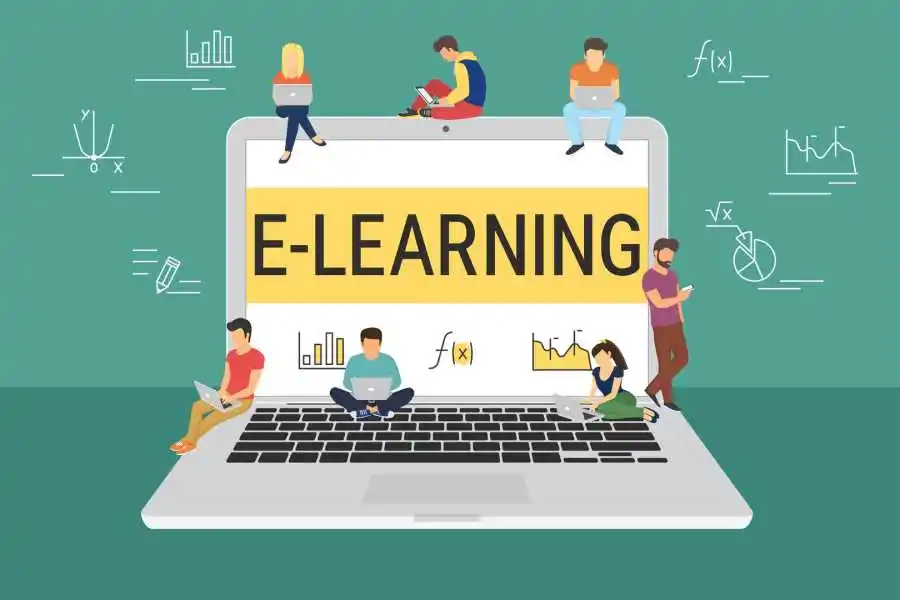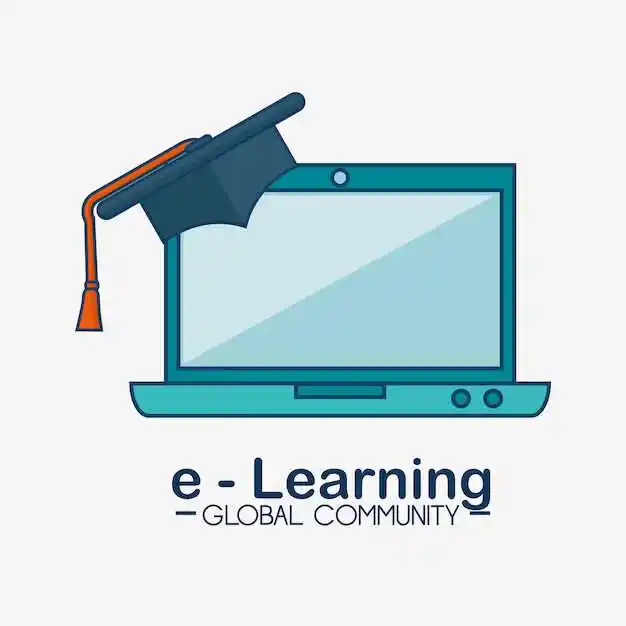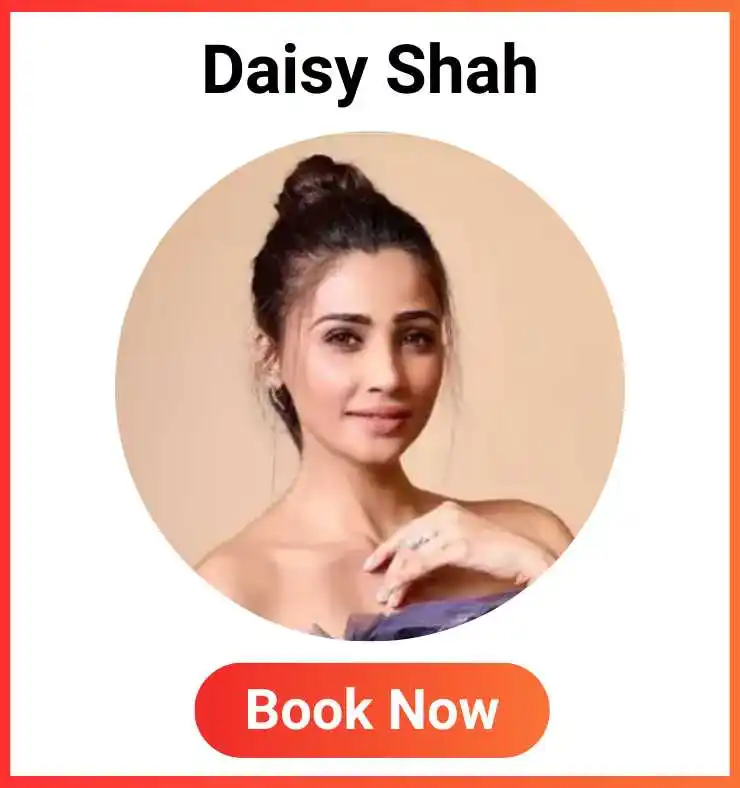How Big is the eLearning Market?
The Indian e-learning market was valued at USD 10.24 billion in 2023 and is expected to grow to USD 28.46 billion by 2029, with a Compound Annual Growth Rate (CAGR) of 18.57%. This significant development is mostly driven by the rising availability of low-cost smartphones and widespread internet connectivity, which have made e-learning widely accessible to both urban and rural consumers.
Top 10 Online Learning Platforms in India
Due to the growing digitalization of the world, online learning is the future of education. Here are the 10 most influential eLearning platforms in India.
-
Khan Academy
-
K8 School
-
Coursera
-
Doubtnut
-
UpGrad
-
SSSi Online Tutoring Services
-
Vedantu
-
Schoolnet India Limited
-
Ebix Smartclass (Fliplearn Prime Application)
-
ExtraMarks
Types of eLearning Training and Solutions
![Types of eLearning Training and Solutions Types of eLearning Training and Solutions]()
In the business sector, eLearning plays a critical role in training and developing the workforce, customers, and partners. Let's explore the four key types of eLearning training and solutions that organizations use to meet their learning objectives.
- Employee Training
Employee training through eLearning is designed to onboard employees faster, facilitate continuous development, and enhance upskilling opportunities. This form of training is instrumental in transforming compliance training from a check-the-box activity to a transformative learning experience. The intention is to encourage employees to seek, share, and apply new knowledge and skills, thereby fostering both personal growth and organisational development. This type of solution enables teams to create and deliver strategic learning initiatives effectively, making development an integral part of the organizational culture.
- Customer or Partner Training
Training customers or partners is another critical application of eLearning, aimed at scaling up onboarding processes and providing ongoing product training. These eLearning solutions are designed to reduce the burden on customer-facing teams by automating the training process, thus enhancing customer and partner relationships through efficient and accessible learning resources. This approach not only improves product adoption and retention rates but also contributes positively to the organization's revenue by ensuring that customers and partners are well-informed and proficient in using the products or services offered.
- Multi-audience Training
Organizations often need to train diverse audiences, including employees, partners, and customers. Multi-audience training solutions cater to this need by providing a single, centralized system for delivering training to various groups. Known as the extended enterprise, this approach eliminates the hassle of managing multiple siloed systems, offering a scalable and cost-effective solution for training all stakeholders. By using a unified eLearning platform, organizations can streamline their training processes, ensuring consistency in the delivery and quality of the training content across different audiences.
- Compliance Training
Compliance training is essential to inform employees about the laws or regulations relevant to their roles and industry. This form of training is mandatory and covers critical topics such as health and safety, workplace dignity, diversity training, HR law, and anti-harassment training. The goal of compliance training through eLearning is to minimize the risk of non-compliance and maintain the organization's reputation by creating a safer and more productive work environment. eLearning makes it easier to update training materials as legislation changes, ensuring that employees always have access to the most current information.
E-learning offers an array of benefits, making it a preferred choice for organizations. Whether it's onboarding new employees, educating customers and partners or training multiple audiences, eLearning provides a flexible, scalable, and cost-effective solution to meet the diverse learning needs of today’s organizations.
Why is eLearning Effective?
![Why is eLearning Effective? Why is eLearning Effective?]()
There are different reasons why eLearning is effective and you should definitely consider using it to educate your audience. Below, we’ve mentioned 7 super amazing benefits of having an eLearning platform. Come, take a look.
- Cost-Effective
One of the standout advantages of eLearning is its cost-effectiveness. Traditional in-person training programs can be expensive, requiring physical materials, venue hire, and sometimes travel expenses for trainers and attendees. In contrast, eLearning eliminates many of these costs. Once an eLearning course is developed, it can be distributed across the organization without incurring additional costs per learner. This scalability factor makes eLearning an economically wise choice for training employees, especially in large organizations.
- Saves Time
E-learning significantly reduces the time required for training. Unlike traditional settings that require scheduling specific times and locations, eLearning allows employees to access training materials at their convenience. This flexibility means learning can happen during downtimes or outside of regular work hours, minimizing disruptions to daily operations. Additionally, because learners can proceed at their own pace, they can skip over material they already know, focusing on areas where they need more development.
- Improves Performance and Productivity
Well-designed eLearning programs can directly impact an employee's performance and productivity. By providing accessible and relevant training materials, employees can continuously upgrade their skills and knowledge, which translates to better work output. Interactive and engaging eLearning courses enhance learning retention, ensuring employees not only acquire but also apply new skills in their jobs. This continual improvement cycle fosters an environment of excellence and innovation within the organization.
- Lower Environmental Impact
E-learning is an eco-friendly alternative to traditional training methods. By reducing the need for physical materials, travel, and venue use, eLearning lessens an organization's carbon footprint. Digital materials negate the need for paper, contributing to conservation efforts and promoting a green corporate image. As sustainability becomes an increasingly important consideration for businesses, adopting eLearning not only serves educational objectives but also aligns with environmental goals.
- Getting Leadership Buy-in for eLearning
For an eLearning platform to be successful, it's essential to secure leadership buy-in. Demonstrating the direct correlation between eLearning, cost savings, and improved productivity can persuade decision-makers of its value. Highlight examples of successful eLearning implementation within your organization or industry to showcase potential benefits. Emphasizing the alignment of eLearning initiatives with the organization's strategic goals can also help secure the support needed for implementation.
- Start Communicating
Effective communication is crucial for the successful adoption of eLearning. Begin by clearly articulating the benefits and expected outcomes of eLearning to all stakeholders. Create awareness campaigns that outline how eLearning works, its accessibility, and its advantages over traditional training methods. Address any concerns or resistance by emphasizing the personal and professional growth opportunities offered through eLearning. Ensuring open and ongoing communication will foster a culture that values and supports digital learning.
- Set Clear Goals
Setting clear, measurable goals for eLearning initiatives is vital. Determine what you aim to achieve through eLearning, whether it's reducing training costs, improving employee performance metrics, or achieving specific compliance standards. Establish metrics to evaluate the success of your eLearning programs. Regularly review these metrics to assess progress and identify areas for improvement. Goal setting not only provides direction but also motivates all involved parties by clarifying the purpose and expected outcomes of eLearning efforts.
What are the Different Types of eLearning Methods?
![What are the Different Types of eLearning Methods What are the Different Types of eLearning Methods]()
In the ever-evolving field of eLearning, a variety of methods are utilized to deliver educational content effectively to learners across the globe. These methods cater to different learning styles, preferences, and logistical considerations, making eLearning a versatile and accessible mode of education for a diverse audience.
Below, we explore three popular types of eLearning methods that can be implemented in various ways to enhance the learning experience.
- Webinars/Live Learning Sessions
Webinars and live learning sessions stand out as a dynamic eLearning method that simulates a classroom environment online. These sessions allow for real-time interaction between instructors and learners, making it possible to ask questions, participate in discussions, and receive immediate feedback. This live interaction helps create a sense of community and engagement that can enhance the learning experience.
One of the main advantages of webinars is their flexibility. They can be accessed from anywhere in the world, provided there is an internet connection, making it convenient for learners with busy schedules or who live in remote areas. Moreover, many webinars are recorded, allowing learners to revisit the content at a later time if they wish to review the material or if they were unable to attend the live session.
Webinars are particularly effective for delivering content that requires real-time demonstrations, interactive workshops, or seminars where participant involvement is crucial. They are a cost-effective way to bring together learners and industry experts without the need for travel or physical meeting spaces.
- Videos
Videos are a powerful eLearning method due to their ability to present information in a visually engaging manner. This method is particularly effective for visual learners who benefit from seeing concepts in action. Video content can range from simple animated explainer videos to complex simulations and demonstrations. The versatility of video allows educators to break down complicated topics into digestible, easy-to-understand pieces.
One of the key strengths of using videos in eLearning is their ability to hold the learner's attention, thereby improving retention and comprehension. Videos can be paused, replayed, and watched at a pace that suits the learner, offering a personalized learning experience. Additionally, the use of visuals, sound, and animation can make learning more enjoyable and less monotonous compared to traditional text-based materials.
In the digital age, creating high-quality video content has become more accessible than ever. Educators can use various tools and platforms to create engaging videos that cater to diverse learning needs and preferences.
- Social Learning
Social learning is based on the idea that people learn from one another, through observation, imitation, and modeling. This eLearning method leverages social media platforms, forums, and online communities to foster collaborative learning experiences. Social learning encourages the sharing of knowledge, ideas, and experiences, making it a dynamic and interactive approach to education.
This method promotes a sense of belonging and community among learners, as they actively participate in shared learning experiences. Discussion boards, peer reviews, and group projects facilitated through digital platforms allow learners to engage with content more deeply by sharing perspectives and feedback.
Moreover, social learning breaks down geographical barriers and enables learners from various parts of the world to connect and collaborate. This global network enriches the learning experience by exposing learners to diverse viewpoints and cultural insights.
E-Learning Marketing Strategies You Must Try
![E-Learning Marketing Strategies E-Learning Marketing Strategies]()
In an era where digital learning platforms have become a cornerstone for students and professionals alike, standing out amongst the plethora of e-learning options can be a daunting task. However, with the right business and product marketing strategies, e-learning platforms can not only capture the attention of their target audience but also retain them. Here are several marketing strategies that are essential for promoting e-learning platforms.
- Create an Engaging Website
Your website is often the first point of interaction between your e-learning platform and potential learners. Thus, it's crucial to make a lasting impression. An engaging website is not just about sleek design; it’s about user experience. Ensure your website is easy to navigate, has a clear value proposition, and showcases your courses effectively. Use compelling visuals and concise content that speaks directly to the learner's needs and challenges. Remember, an intuitive and informative website can turn visitors into learners.
- Build Relationships on Facebook Groups
Social media is a powerful tool for building communities and engaging with potential learners. One of the most effective strategies is leveraging Facebook Groups. Creating or participating actively in Facebook Groups related to your e-learning platform's subject matter can help you build relationships with potential learners. Use these groups to offer valuable insights, answer questions, and establish your platform as a go-to resource. This approach not only builds trust but also subtly markets your courses to an engaged audience.
- Use Email Marketing to Promote Your Programs
Email marketing remains an invaluable tool for e-learning platforms. It allows you to directly communicate with your audience, providing them with updates, course information, and exclusive offers. To maximize its effectiveness, segment your email list based on the user's interests, past engagements, or course enrollments. Personalized emails that cater to the individual's learning needs or goals are more likely to resonate and drive enrolment. Remember, consistency and value are key in email marketing.
- Offer Free Courses
One of the most persuasive strategies to attract new learners is to offer free courses. Free courses serve as a risk-free introduction to your e-learning platform, allowing potential learners to experience your teaching style and the quality of content. These initial touchpoints can act as a funnel, leading satisfied learners to explore and enroll in your paid offerings. Additionally, free courses are shareable, increasing your platform's visibility through word-of-mouth.
- Network and Attend Events
Never underestimate the power of face-to-face interactions. Networking and attending industry events allow you to connect with potential learners, partners, and even influencers in a more personal and impactful way. These interactions provide insights into the latest e-learning trends, market needs, and can open doors to collaborations. Whether virtual or in-person, actively participating in these events can significantly boost your platform's profile within the industry.
- Get Celebrities to Talk About Your eLearning Platform on Podcasts
- Leveraging the reach and influence of celebrities can amplify your marketing efforts significantly. Encourage celebrities or industry leaders to share their experiences or viewpoints on your e-learning platform during popular podcasts. This strategy not only lends credibility to your platform but also exposes it to a wider, potentially global audience. The endorsement from a well-respected figure can boost interest and enrollment, making it a potent marketing tool.
Talk to us, and we help you find the PERFECT celebrity or influencer that matches your brand image.
![Malhar Kalambe.png]()
![Shamita Shetty.png]()
![Prajakta Mali.png]()
![Makarand Deshpande Deshpande Mali.png]()
![button_book-a-celebrity.png]()
Crafting Your E-Learning Branding Strategy
![E-Learning Branding E-Learning Branding]()
Building a strong brand is pivotal in the crowded e-learning landscape. Your branding strategy is not just about standing out; it's about resonating with your target audience and creating lasting connections. Here are several actionable eLearning branding strategies you should consider.
- Choose a Suitable Color Palette
Colors evoke emotions and communicate values at a glance. Choosing a color palette for your e-learning platform can significantly impact how learners perceive your brand. Opt for colors that align with your brand's personality. For example, blue often conveys trust and dependability, while green represents growth and health. Selecting a consistent color palette enhances brand recognition and ensures that your learners associate your chosen colors with the quality education you provide.
- Use Employees as Brand Ambassadors
Your employees are your strongest assets when it comes to branding. Encourage them to share their passion for education and your platform on social media. Their genuine testimonials and insights can humanize your brand and showcase the people behind the platform. This strategy fosters trust and loyalty among potential learners, showing them the real impact of your courses and the dedication of your team.
- Keep Your Branding Consistent Across all Platforms
Consistency is key to building a strong brand. Ensure your visual elements, tone of voice, and messaging are cohesive across all your platforms, from your website to social media channels. Consistency solidifies your brand identity, making it easier for learners to recognize and remember your e-learning platform. Whether it's a tweet, a blog post, or a course description, maintaining a unified brand voice reassures learners of the quality and reliability of your offerings.
- Use Emotional Appeal
Connecting with potential learners on an emotional level can transform your brand from a service to a community. Highlight success stories, share learner testimonials, and focus on the transformative power of education. Emphasize how your platform can help achieve personal or professional goals. Tapping into emotions such as ambition, curiosity, and satisfaction fosters a deeper connection with your audience and encourages them to embark on their learning journey with you.
- Get Celebrity Images to Brand Your eLearning Platform
Incorporating celebrities into your branding strategy can elevate your platform's visibility and appeal. Secure endorsements or use images of celebrities who align with your brand's values and aesthetics. Celebrity associations lend credibility and can attract fans to your platform, expanding your reach. Ensure any partnership feels authentic to your brand's mission to maintain trust and integrity in the eyes of your learners.
Get in touch with us and get some amazing celebrity images and creatives to use for branding your eLearning platform.
![button_talk-to-us.png]()
Crafting a compelling e-learning branding strategy requires thought, creativity, and consistency. Make your brand memorable, make it impactful, and watch your e-learning platform thrive.
E-Learning Advertising Ideas You Need to Try!
![E-Learning Advertising E-Learning Advertising]()
In the rapidly growing market of e-learning, standing out can be challenging. However, innovative advertising strategies can significantly enhance your platform's visibility and appeal. Here are some unique and effective ways to advertise your e-learning platform.
- Vehicle Wraps of Your eLearning Platform
Take your advertising on the road with vehicle wraps. This moving billboard strategy ensures your e-learning platform gains high visibility across different locations. Choose eye-catching designs and ensure your message is clear and concise. Highlight your platform's unique selling points, and don't forget to include contact information. Vehicle wraps work well for local market penetration, making your brand a familiar name in daily commutes.
- Distribute Flyers and Pamphlets in Educational Institutes and Offices
Traditional methods still have their charm and effectiveness. Distributing well-designed flyers and pamphlets in educational institutes and offices can directly target your potential audience. Ensure these materials are visually appealing and clearly outline what your platform offers, focusing on how it solves specific learning needs. Including QR codes that lead to a free trial or a demo course can significantly increase conversion rates.
- Put up Kiosks to Advertise Your Online Learning Course
Setting up interactive kiosks in malls, educational fairs, or busy public areas can offer potential learners a hands-on experience of your platform. These kiosks can serve as mini-classrooms where people can engage with your courses, ask questions, and even sign up on the spot. Having knowledgeable staff at these kiosks to provide information and assist visitors enhances the personal touch, making the learning experience more tangible.
- Create Educational Content to Advertise Your eLearning Platform
Content is king, and educational content that offers real value can draw learners to your platform. Create blogs, infographics, short courses, or webinars that address common challenges or hot topics in your field. By showcasing your expertise and the quality of your content, you're not just advertising; you're building a relationship with your audience. Promote this content across social media channels, email newsletters, and partner websites to reach a wider audience.
- Offer Exclusive Discounts to Corporate Partnerships
Forge partnerships with corporations to offer their employees exclusive discounts on your courses. This B2B approach not only secures bulk enrollments but also establishes your platform as a preferred choice for professional development. Tailoring packages or courses to meet specific corporate needs can further solidify these partnerships and enhance your brand's reputation.
- Use Celebrity Video Ads on LinkedIn
LinkedIn is a goldmine for reaching professionals eager to learn and grow. Celebrity video ads on this platform can work wonders for your brand. Collaborate with industry leaders or well-known professionals who resonate with your target audience. Having them talk about the benefits of your courses in a short video can boost credibility and attract serious learners. Make sure the content is engaging and provides value, striking the perfect balance between informative and promotional.
Talk to us, and we help you in securing an amazing celebrity endorsement deal for promoting your online learning platform, course, or application.
![Priya Mani Raj.png]()
![Swwapnil Joshi.png]()
![Chetan Bhagat.png]()
![Jay Bhanushali.png]()
![button_book-a-celebrity.png]()
How to Promote an eLearning Courses and Platform?
![How to Promote an eLearning Courses and Platform? How to Promote an eLearning Courses and Platform?]()
Promoting an eLearning course or platform requires innovative and strategic approaches to attract eyes. Here are seven effective eLearning promotional strategies:
- Connect With Your e-Learners on Social Media
Social media is a powerful tool to connect and engage with potential learners. Platforms like Twitter, Facebook, LinkedIn, and Instagram offer unique opportunities to showcase your courses and share valuable content. Use these channels to highlight student success stories, share tips or insights related to your course topics, and engage in conversations with your followers. Regularly posting and interacting on social media builds a community around your brand, increasing loyalty and word-of-mouth referrals.
- Write Blogs on Industry Topics Relevant to Your eLearning Course
Blogging is a fantastic way to draw attention to your courses. Write about topics relevant to your industry, addressing common challenges, trends, and insights. Each blog post is an opportunity to showcase your expertise and the value of your courses. Optimize your blog posts for search engines to increase your visibility in search results, driving organic traffic to your platform. Additionally, guest blogging on established industry sites can help reach a wider audience and attract more learners.
- Publish eBooks and White E-Papers for Lead Generation
Creating eBooks and white papers is an excellent strategy for lead generation. These in-depth resources provide valuable information that potential learners are seeking. By requiring users to provide their email addresses to download these materials, you can build a list of prospects interested in your topics. Follow up with an email marketing campaign that nurtures these leads, offering them special promotions or more information about your eLearning courses.
- Offer Free Trials or Mini-Courses
Providing a sneak peek into your eLearning platform through free trials or mini-courses can entice prospects to sign up. This approach allows potential learners to experience the quality of your content and platform's usability firsthand, making them more likely to commit to a full course. Highlight these offers in your promotional materials and include positive reviews or testimonials to boost their effectiveness.
- Participate in Online Forums and Communities
Being active in online forums and communities relevant to your course topics can help build your authority and direct interested learners to your platform. Answer questions, provide insights, and engage in discussions genuinely. Avoid overly promotional language, focusing instead on providing value and establishing your presence as a helpful resource.
- Host Webinars and Online Workshops
Hosting free webinars and online workshops on trending topics or essential skills can attract a broad audience. Use these events to showcase the depth of knowledge your platform offers, encouraging participants to explore more courses. Make sure to have a call-to-action at the end of the event, guiding them on how to sign up or learn more about your platform.
- Secure Celebrity to Promote Your eLearning Platform on Their Instagram Account
Leveraging the influence of celebrities or industry leaders on platforms like Instagram can significantly boost your brand's visibility. Partnerships with these individuals to promote your courses lend credibility and can attract their followers to your platform. Choose celebrities whose followers match your target demographic and who align with your brand values for a more authentic and effective promotion.
Are you unsure where to find celebrities? Don’t worry, we’ve got your back. Connect with us, and we will help you clear all your doubts and find you the right celebrity to promote your online learning platform or course.
![Daisy-Shah.png]()
![Devdatta Nage.png]()
![Viswanathan Anand.png]()
![Kishori Shahane.png]()
![button_talk-to-us.png]()
Remember, the key is to consistently provide value and maintain the quality of your offerings, building a loyal and engaged learner base.
Book a Celebrity to Promote Your eLearning Platform or Course!
Boost your eLearning platform's appeal with a celebrity endorsement! Find the right star to match your brand's image and tap into their vast fan base. A trusted face can elevate your visibility and build instant credibility.
Don't miss out on this chance to shine. Get a celebrity on board now and watch your enrollments soar.
Contact us today to secure your perfect celebrity match!
![button_book-a-celebrity.png]()
![birthday occasion]() Birthday Gifts
Birthday Gifts
![anniversary occasion]() Anniversary Gifts
Anniversary Gifts
![women]() Women
Women
![men]() Men
Men
![Couples]() Couples
Couples
![Couples]() Wedding Gifts
Wedding Gifts

 Birthday Gifts
Birthday Gifts
 Women
Women
 Men
Men
 Anniversary Gifts
Anniversary Gifts
 Wedding Gifts
Wedding Gifts

























 We now support international payments
We now support international payments
